[ad_1]
Harayana, India
CNN
—
Satish Kumar sits in entrance of his submerged rice paddy in India’s Haryana state, wanting despairingly at his ruined crops.
“I’ve suffered a tremendous loss,” stated the third era farmer, who depends solely on rising the grain to feed his younger household. “I will not be able to grow anything until November.”
The newly planted saplings have been underwater since July after torrential rain battered northern India, with landslides and flash floods sweeping via the area.
Kumar stated he has not seen floods of this scale in years and has been compelled to take loans to replant his fields over again. But that isn’t the one downside he’s going through.
Last month, India, which is the world’s largest exporter of rice, introduced a ban on exporting non-basmati white rice in a bid to calm rising costs at house and guarantee meals safety. India then adopted with extra restrictions on its rice exports, together with a 20% responsibility on exports of parboiled rice.
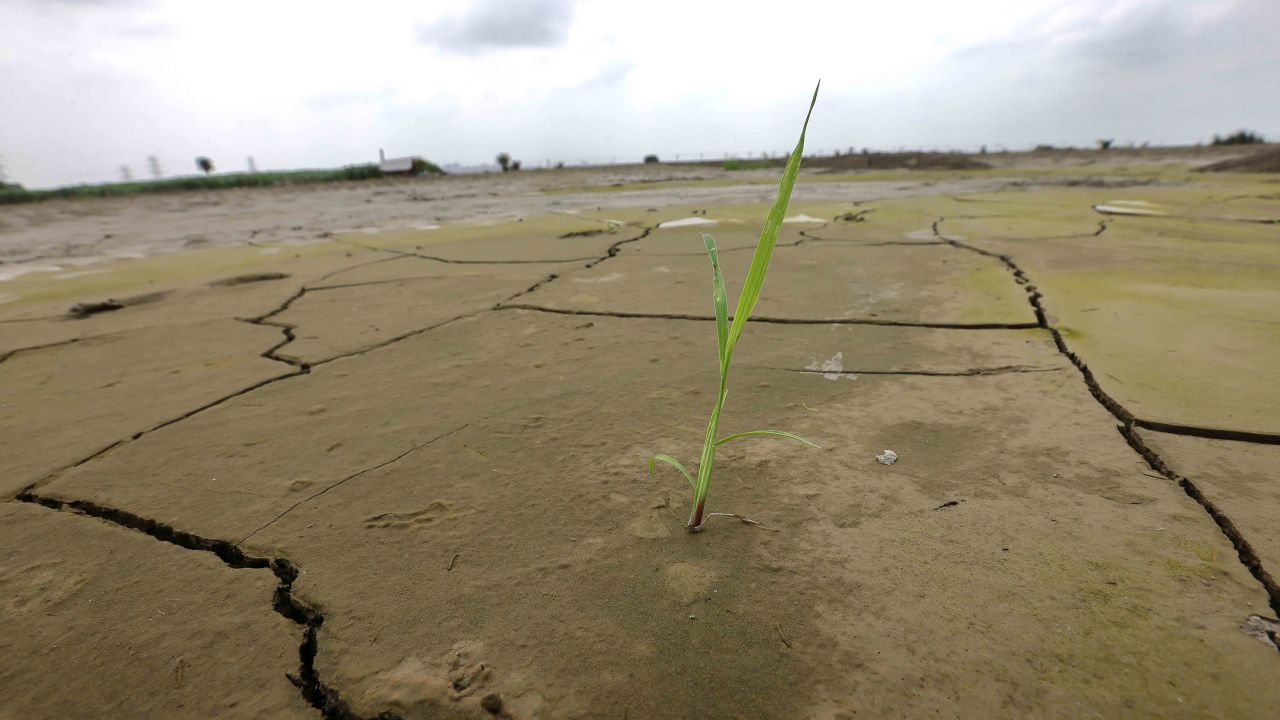
The transfer has triggered fears of worldwide meals inflation, damage the livelihoods of some farmers and prompted a number of rice-dependent international locations to hunt pressing exemptions from the ban.
More than three billion individuals worldwide depend on rice as a staple meals and India contributed to about 40% of worldwide rice exports.
Economists say the ban is simply the most recent transfer to disrupt world meals provides, which has suffered from Russia’s invasion of Ukraine in addition to climate occasions corresponding to El Niño.
They warn the Indian authorities’s resolution might have vital market reverberations with the poor in Global South nations specifically bearing the brunt.
And farmers like Kumar say market value rises attributable to poor harvests doesn’t lead to a windfall for them both.
“The ban is going to have an adverse effect on all of us. We won’t get a higher rate if rice isn’t exported,” Kumar stated. “The floods were a death blow to us farmers. This ban will finish us.”
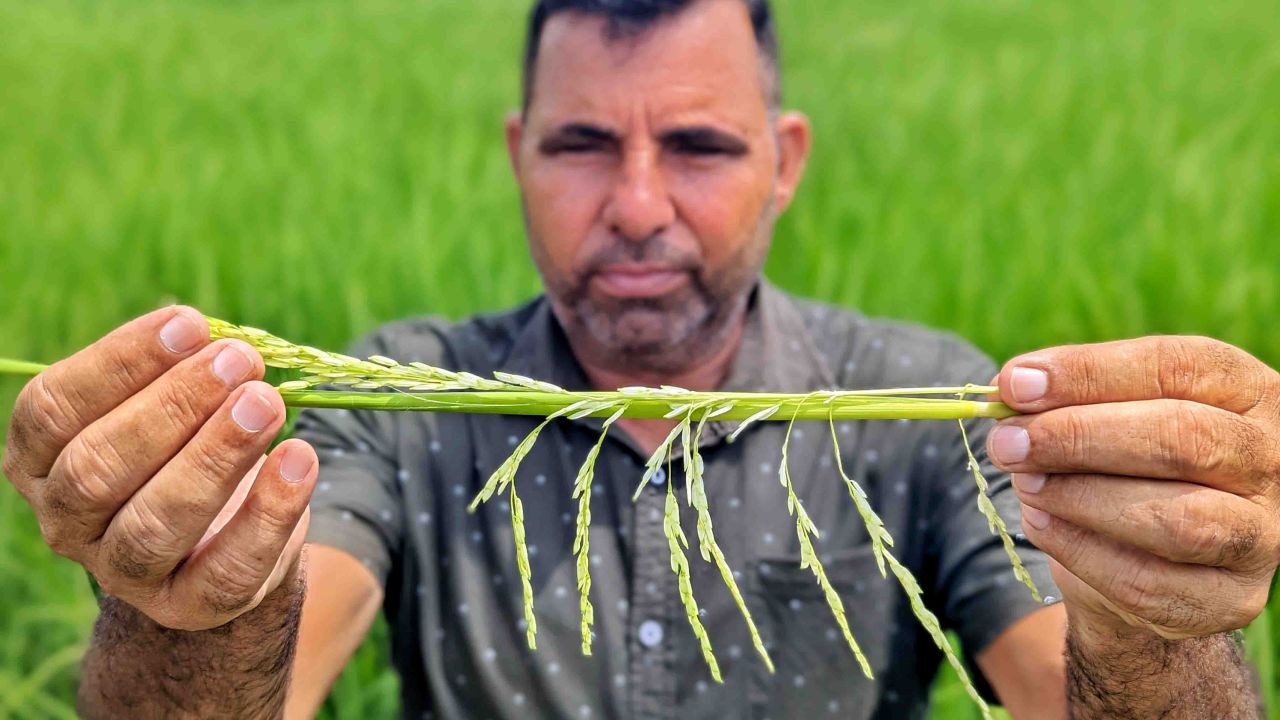
The abrupt announcement of the export ban triggered panic shopping for within the United States, following which the worth of rice soared to a close to 12-year excessive, in accordance with the United Nations Food and Agriculture Organization.
It doesn’t apply to basmati rice, which is India’s best-known and highest high quality selection. Non-basmati white rice nonetheless, accounts for about 25% of exports.
India wasn’t the primary nation to ban meals exports to make sure sufficient provide for home consumption. But its transfer, coming only one week after Russia pulled out of the Black Sea grain deal — a vital pact that allowed the export of grain from Ukraine — contributed to world issues concerning the availability of grain staples and whether or not tens of millions would go hungry.
“The main thing here is that it is not just one thing,” Arif Husain, chief economist on the United Nations World Food Programme (WFP) informed CNN. “[Rice, wheat and corn crops] make up bulk of the food which poor people around the world consume.”
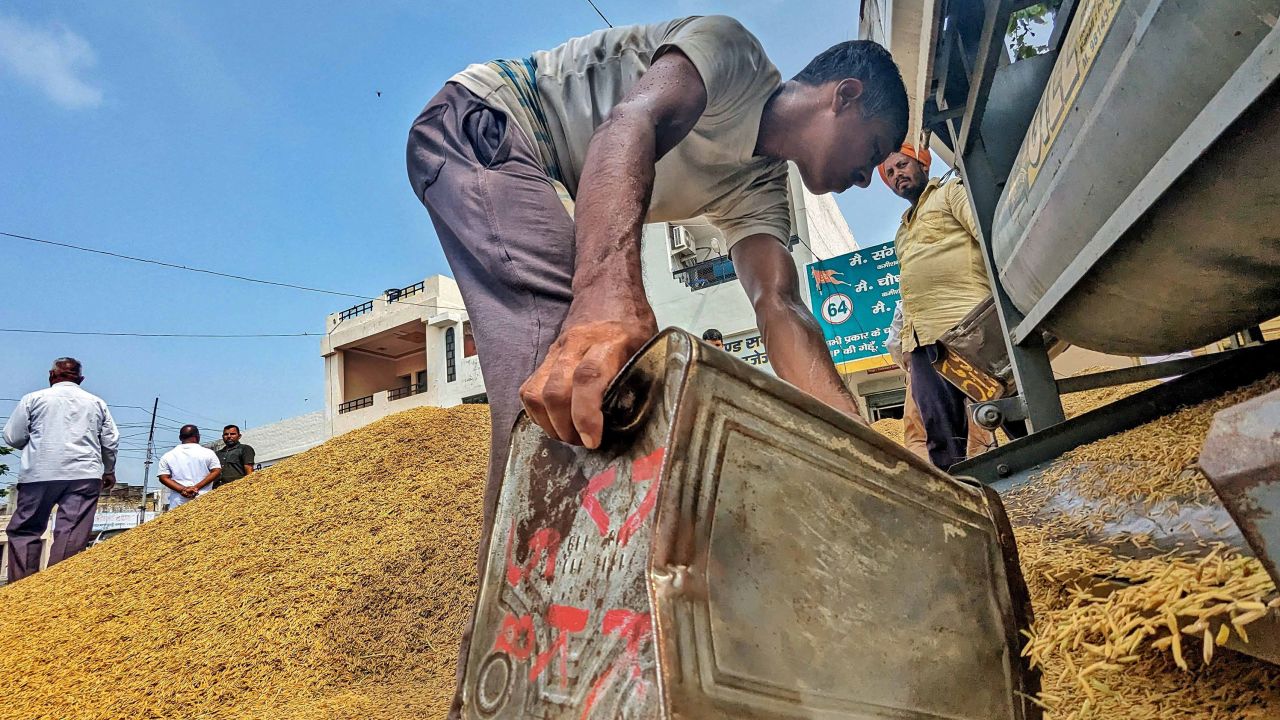
Nepal has seen rice costs surge since India introduced the ban, according to local media reports, and rice costs in Vietnam are the very best they’ve been in additional than a decade, in accordance with customs information.
Thailand, the world’s second largest rice exporter after India, has additionally seen home rice costs bounce considerably in latest weeks, in accordance with information from the Thai Rice Exporters Association.
Countries together with Singapore, Indonesia and the Philippines, have appealed to New Delhi to renew rice exports to their nations, according to local Indian media reports. CNN has reached out to India’s Ministry of Agriculture however has not obtained a response.
The International Monetary Fund (IMF) has inspired India to take away the restrictions, with the group’s chief economist, Pierre-Olivier Gourinchas, telling reporters final month that it was “likely to exacerbate” the uncertainty of meals inflation.
“We would encourage the removal of these types of export restrictions because they can be harmful globally,” he stated.
Now, there are fears that the ban has the world market bracing for comparable actions by rival suppliers, economists warn.
“The export ban is happening at a time when countries are struggling with high debt, food inflation, and declining depreciating currencies,” Husain from the WFP stated. “It’s troubling for everyone.”
Indian farmers account for practically half of the nation’s workforce, in accordance with authorities information, with rice paddy primarily cultivated in central, southern, and a few northern states.
Summer crop planting usually begins in June, when monsoon rains are anticipated to start, as irrigation is essential to develop a wholesome yield. The summer season season accounts for greater than 80% of India’s whole rice output, in accordance with Reuters.
This 12 months, nonetheless, the late monsoon arrival led to a big water deficit up till mid-June. And when the rains lastly arrived, it drenched swathes of the nation, unleashing floods that precipitated vital harm to crops.
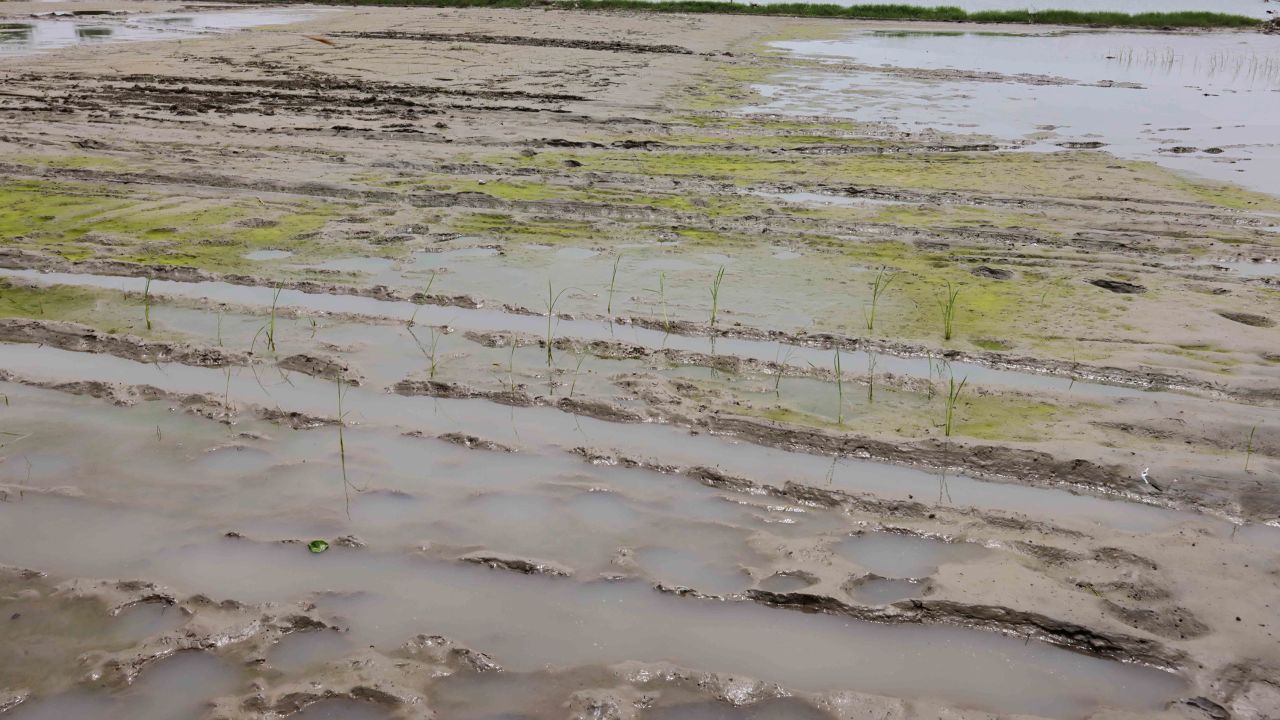
Surjit Singh, 53, a 3rd era farmer from Harayana stated they “lost everything” after the rains.
“My rice crops have been ruined,” he stated. “The water submerged about 8-10 inches of my crops. What I planted (in early June) is gone… I will see a loss of about 30%.”
The World Meteorological Organization final month warned that governments should put together for extra excessive climate occasions and document temperatures, because it declared the onset of the warming phenomenon El Niño.
El Niño is a pure local weather sample within the tropical Pacific Ocean that brings warmer-than-average sea-surface temperatures and has a significant affect on climate throughout the globe, affecting billions of individuals.
The influence has been felt by hundreds of farmers in India, a few of whom say they are going to now develop crops aside from rice. And it doesn’t simply cease there.
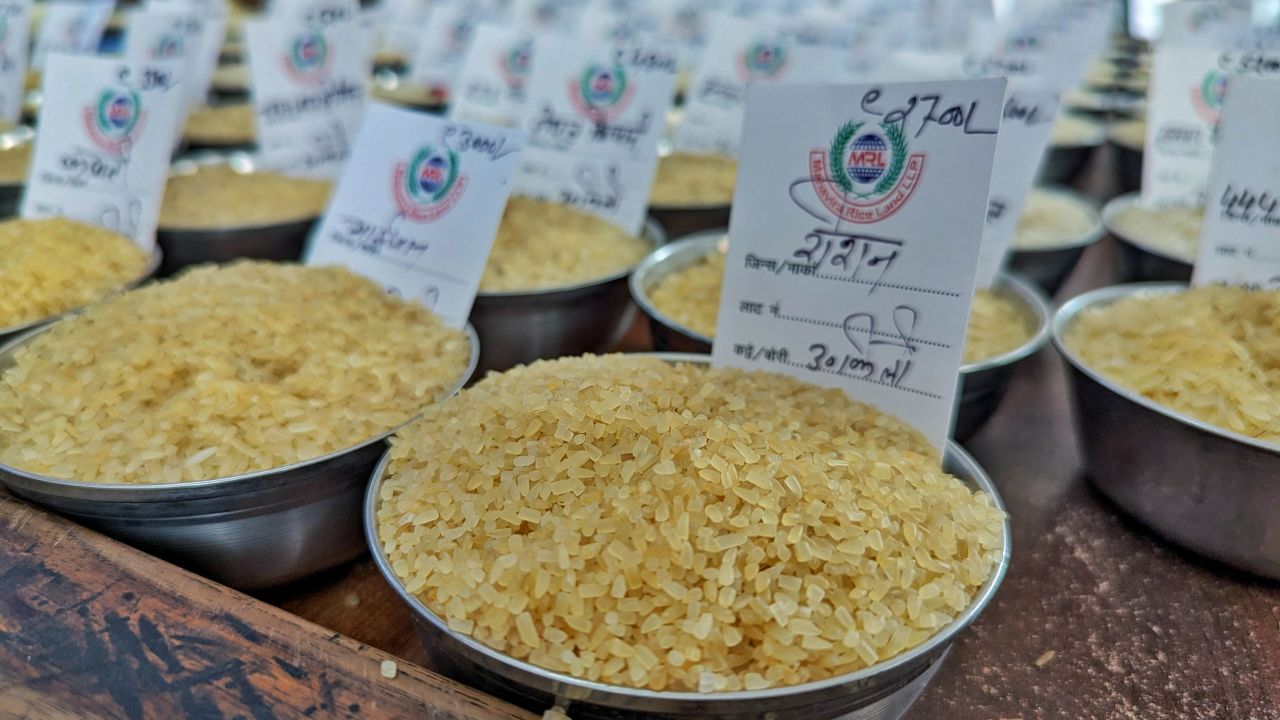
At one among New Delhi’s largest rice buying and selling hubs, there are fears amongst merchants that the export ban will trigger catastrophic penalties.
“The export ban has left traders with huge amounts of stock,” stated rice dealer Roopkaran Singh. “We now have to find new buyers in the domestic market.”
But specialists warn the results will likely be felt far past India’s borders.
“Poor countries, food importing countries, countries in West Africa, they are at the highest risk,” stated Husain from the WFP. “The ban is coming on the back of war and a global pandemic… We need to be extra careful when it comes to our staples, so that we don’t end up unnecessarily rising prices. Because those increases are not without consequences.”
[adinserter block=”4″]
[ad_2]
Source link